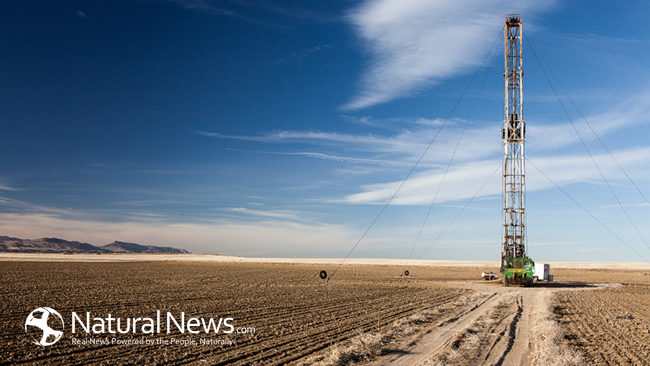The introduction of fracking, a deep-drilling process that uses a high-pressure stream of water to release natural gas from deep inside the Marcellus Shale formation, has led to a massive boom for the natural gas and oil industries. But for many others, the fracking boom has meant sickness and hardship. A growing body of evidence suggests that fracking causes air and water pollution and could present a wide range of risks to human health.
Several studies have shown that people who live close to fracking wells suffer from the effects of air and water pollution. But new research has emerged to show that the air pollution associated with fracking can travel hundreds of miles away to affect even those people living in cities and states where fracking is banned. This new research means that the public health risks of fracking are even greater than previously believed.
Fracking Contaminates Air and Water
The link between environmental pollution and public health is already well-established. Scientists have also amassed plenty of proof that fracking is a cause of air and water pollution. A 2014 study in Pennsylvania found that methane water pollution in residential wells located one mile from fracking sites was six times higher than in wells located further away from fracking sites. Groundwater contamination from fracking has been found in several states, and at least one study has linked proximity to fracking wells with a number of health complaints, including upper respiratory problems, skin rashes, and birth defects.
Fracking wells in Pennsylvania are releasing huge amounts of methane and ethane, greenhouse gases that contaminate both the air and water around fracking sites. But air pollution from fracking doesn’t just affect those who live near fracking wells. New evidence suggests that pollution travels hundreds of miles on the wind, to wreak havoc on the health of city dwellers going about their business in other states.
Air Pollution from Fracking Travels Hundreds of Miles
In a new study published recently in the journal Atmospheric Environment, scientists examined ethane levels in Baltimore and Washington D.C., two cities located hundreds of miles from fracking wells in West Virginia, Pennsylvania, and Ohio. Maryland recently passed a moratorium on fracking, and didn’t allow the practice between 2010 and 2013, when former Governor Martin O’Malley proposed regulations for the practice.
That means there’s no reason why levels of ethane, a component of natural gas released during the fracking process, should be unusually high in Baltimore and Washington D.C. — but they are. The only logical explanation is that clouds of fracking air pollution are wafting in from natural gas and oil fields hundreds of miles away.
According the researchers’ findings, ethane levels in the Baltimore and Washington D.C. areas rose 30 percent between 2010 and 2013, as neighboring states jumped wholeheartedly into the fracking boom. Fracking certainly isn’t the only possible source of summertime air pollution in the two cities, but researchers assert that levels of other airborne contaminants are significantly lower since the 1990s.
How exactly is ethane gas reaching Baltimore and Washington D.C. from areas as far away as Ohio? Researchers blame the prevailing winds of Mid-Atlantic region, which pass over those parts of Ohio, West Virginia, and Pennsylvania where gas drilling is prevalent, before finally reaching Baltimore and Washington D.C.
So it’s not just those who live near fracking wells who must concern themselves with the health effects of fracking. Anyone who lives within the path of Mid-Atlantic prevailing wind patterns should worry. The study’s co-author Sheryl H. Ehrman, said of the findings, “It looks like we’ve got a problem. I think we’ve got a regional issue.”
The scientists aren’t currently tracking increases in methane pollution from fracking operations, but call the results of this study “a canary in the coal mine.” Methane is a much more powerful greenhouse gas, and the scientists warn that if fracking in the Midwest is causing ethane spikes as far away as Baltimore, that means levels of methane air pollution are climbing dangerously high, too. Some warn that smog from fracking fields could completely reverse all of the progress lawmakers and environmentalists have made toward cleaner air in recent decades.
It’s long been known that fracking pollutes groundwater near fracking fields and contributes to dangerous spikes in local air pollution. New research suggests that the air pollution caused by fracking is traveling on prevailing winds to affect city-dwellers hundreds of miles away. The implications are grim — but perhaps this new evidence will be the impetus lawmakers need to finally bring the fracking boom screeching to a halt.
Sources:
http://www.scientificamerican.com/article/groundwater-contamination-may-end-the-gas-fracking-boom/





